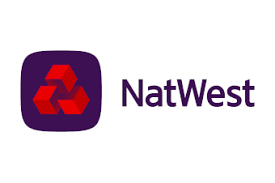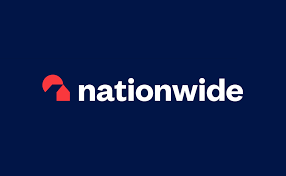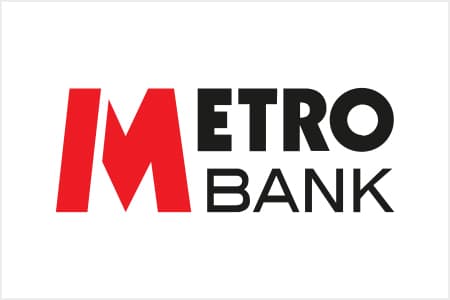Best Mortgage Lenders in the UK 2025
Find the best mortgage lender with our expert guide to the market.
Updated:
When you purchase through links on our site, we may earn an affiliate commission. Here's how it works.

Taking out a mortgage—a loan used to purchase a property—is a huge financial milestone for many people. However, it also represents a significant debt that will likely take many years to repay, making it important to choose your lender carefully.
With many options on the market, we’ve looked into the best mortgage lenders in the UK to highlight some top choices. We compared the types of mortgages offered, whether they let you apply for a Decision in Principle (DIP) online, and indicative rates to save you time and effort researching the possibilities.
5 best mortgage lenders in 2025 compared
To help you choose the best provider, we’ve created a detailed comparison of the 5 top picks.
Lender | Best for | Our expert score | First-time buyer? | Buy-to-let? | Online DIP? | Rate* |
Halifax | All-rounder | 5/5 | Yes | Yes | Yes | 4.71% |
NatWest | Convenience | 5/5 | Yes | Yes | Yes | 4.67% |
Nationwide | First-time buyers | 4/5 | Yes | Yes | Yes | 4.74% |
Coventry Building Society | Green buyers | 4/5 | Yes | Yes | No | 4.18% |
Metro Bank | Professionals | 3/5 | Yes | Yes | No | 5.89% |
*Rate is for a 5-year fixed-rate, 25-year mortgage for a first-time buyer. Property value given as £400,000, with a £40,000 deposit.
1. Halifax – Best all-rounder

Our expert score: 5/5
Pros
- Higher loans available for first-time buyers (up to 22% boost)
- Online dashboard to manage your mortgage
- Monthly mortgage prize draw with the chance to wipe £300,000 off your loan
Cons
- Some products carry an early repayment charge
Halifax offers a variety of mortgage options for first-time buyers. One option is a 95% loan, which requires only a 5% deposit. Additionally, if you don’t have an adequate deposit, the Family Boost product allows your relatives to deposit 10% of the property’s value into a fixed-term savings account to support your purchase.
First-time buyers can also benefit from a boosted loan amount, receiving an additional 22%. Moreover, Halifax provides interest-only mortgages, new-build loans, and buy-to-let mortgages. You can also receive cashback of up to £2,000 when you borrow for energy-efficient home improvements.
Why buy? Expert verdict
Halifax is a great all-rounder with a user-friendly online service that includes a helpful mortgage dashboard to manage your loan. It even runs a prize draw that can wipe £300,000 off your mortgage! With a range of products for all kinds of buyers, it could be worth a look, whether you’re taking your first step onto the property ladder or buying your next home.
✍️ Have you used this mortgage lender? Share a rating or find out what users have to say on our Halifax mortgage reviews page.
2. NatWest – Best for convenience

Our expert score: 5/5
Pros
- Get a quick, online DIP in less than 10 minutes
- Up to £1,000 cashback for first-time buyers
- NatWest mortgages available across a range of brands, including RBS and Ulster Bank
Cons
- No loan size boost for first-time buyers
NatWest is a well-established player in the mortgage industry, offering a variety of products to cater to different types of buyers. First-time buyers, for instance, can benefit from a 95% mortgage or can take advantage of cashback offers up to £1,000. Additionally, there are options for buy-to-let mortgages and loans for new builds, with offers that can be extended after 6 months.
It’s important to note that NatWest mortgages are also available through several affiliated brands. So, if you go through RBS, Ulster Bank, or other companies under the NatWest umbrella, NatWest is actually your lender.
Why buy? Expert verdict
NatWest simplifies the mortgage process with an online application system, helpful resources on its website, and the option for video calls with mortgage professionals. NatWest also allows you to overpay up to 20% of your loan amount, which is double that of other providers. This makes it an excellent choice for organised property owners!
✍️ Have you used this mortgage lender? Share a rating or find out what users have to say on our NatWest mortgage reviews page.
3. Nationwide – Best for first-time buyers

Our expert score: 4/5
Pros
- Offers supportive video calls with mortgage professionals
- Easy online DIP and mortgage application
- Up to £500 cashback as a first-time buyer and when buying an energy-efficient home
Cons
- Interest-only limited to 6 months
- No longer offers retirement mortgages
Nationwide offers a range of mortgage products to suit a variety of buyers. First-time buyers can benefit from a 95% mortgage, which requires only a 5% deposit, or opt for a Helping Hand mortgage, allowing them to borrow up to 22% extra at a fixed rate for 5-10 years. Both options include up to £500 cashback.
Additionally, buyers purchasing an energy-efficient home can receive an extra £250-£500. Nationwide also provides specialist buy-to-let mortgages for up to 80% of the property’s value.
Why buy? Expert verdict
Nationwide is renowned for looking after its customers and is the best mortgage lender for first-time buyers. The cashback options and the opportunity to increase the loan amount by up to 22% for these purchasers are particularly appealing. The provider also simplifies the application process with a quick DIP tool and ample resources on the website.
✍️ Have you used this mortgage lender? Share a rating or find out what users have to say on our Nationwide mortgage reviews page.
4. Coventry Building Society – Best for green buyers

Our expert score: 4/5
Pros
- Get a lower rate for borrowing to make green improvements
- Get £1,000 cashback as a first-time buyer in Coventry
- Easily switch to interest-only repayment
Cons
- No online applications
Coventry Building Society caters to homeowners and landlords. It also covers new builds with a longer mortgage offer period (up to 9 months) to give you time to finalise your purchase. You can also take out an interest-only mortgage if you meet the criteria.
While there are many helpful tools on the website, you’ll need to call the building society to get started on your application, as you can’t do this online.
Why buy? Expert verdict
Coventry Building Society has several enticing offers that match its responsible ethos. If you’re a resident of Coventry, you can get £1,000 cashback when you take out your mortgage. If you’re not lucky enough to live in an eligible postcode, you can be rewarded for buying a greener, more energy-efficient home with a lower mortgage rate. It also had the lowest quoted interest rate on the day we checked.
✍️ Have you used this mortgage lender? Share a rating or find out what users have to say on our Coventry Building Society mortgage reviews page.
5. Metro Bank – Best for professionals

Our expert score: 3/5
Pros
- Mortgage allows you to rent out your home for up to 90 days
- Special offers for recently qualified professionals
- Suitable for buyers up to 80 years old
Cons
- May offer higher rates than some other providers
- Recently fined for weaknesses in its anti-money-laundering mechanisms
Metro Bank offers a wide range of mortgage products. This includes options specifically designed for people with low credit scores, making it among the best for low-income borrowers.
It also caters to recently qualified professionals, new-build purchases, and first-time buyers (the latter can access a 95% mortgage). Notably, Metro Bank can lend to individuals up to 80 years old, making it a potentially good choice for older buyers. However, it’s not the most convenient option, as you’ll need to call or visit a branch to kickstart the mortgage application process.
Why buy? Expert verdict
Metrobank caters to a wide range of buyers. Its offers are particularly appealing if you’re a recently qualified professional, as you’ll be able to access a loan of up to 5.5 times your salary—which can unlock a better home. On the flipside, Metro Bank is also one of the best mortgage lenders for bad credit and low-income individuals.
✍️ Have you used this mortgage lender? Share a rating or find out what users have to say on our Metro Bank mortgage reviews page.
Types of mortgage
There are several main mortgage types to know about; let’s explore them below.
Fixed-rate mortgages
When you take out a fixed-rate mortgage, the interest rate you repay will be set for a specific time period, usually 2, 3, 5, or 10 years. This means you’ll always repay the same amount each month, which can make budgeting easier.
If interest rates change in general (i.e., the Bank of England raises or lowers them according to the performance of the economy), then your fixed rate will be unaffected. You’ll need to remortgage at the end of the fixed rate period if you want to obtain another fixed rate.
Variable-rate mortgages
With a variable-rate mortgage, the amount you pay each month can change, usually according to a rate set by the lender. This can be known as a Standard Variable Rate (SVR).
An SVR is typically more expensive than a fixed rate or tracker rate (see below), but you may be put onto this automatically once your fixed rate period runs out. You may also choose to stay on this variable rate for some time until you can remortgage for a better deal.
Tracker mortgages
With a tracker mortgage, the interest rate is variable and fluctuates according to the Bank of England’s base interest rate. This might be preferable if you think the base interest rate will go down rather than locking yourself into a higher rate for several years. However, remember that the base rate can also go up.
Discount mortgages
With a discount mortgage (aka a discounted variable mortgage), the bank will set a variable rate that is a certain percentage below its usual SVR. This will usually last for a specific period of time, like 3 years. As with other variable rates, your monthly repayments can go up and down, making it difficult to budget for. However, it may help you secure a favourable rate, depending on what’s going on with interest rates in general.
Interest-only mortgage
An interest-only mortgage means you’ll only pay back the interest on your loan each month rather than pay down the loan itself. So, your monthly payment will be much lower than a full mortgage repayment. However, because you’re not actually paying down the mortgage, interest will accrue over time, and you’ll have more to pay off in the end.
Flexible mortgage
With a flexible mortgage, you can adjust your payments to overpay, underpay, or take a break from repaying. This could be useful if you’re not sure what your circumstances will be like over time. However, these may have less favourable interest rates than other types.
Buy-to-let mortgage
If you’re purchasing a property with the plan to rent it out, you’ll need a buy-to-let mortgage. The affordability of the mortgage is usually tested on the rent you’re likely to make. This type of loan can help you get started with a rental business, but you should bear in mind that there may be higher interest rates than for residential properties.

What type of mortgage do I need?
The type of mortgage you need will depend on whether you’re buying a residential property (i.e., you’ll live in it yourself) or a buy-to-let. You should also consider how you want to repay your loan, whether you want the flexibility to overpay or underpay, and if you’re looking to keep costs low with an interest-only loan or are keen to pay off the mortgage over time.
If you’re a first-time buyer, consider loan types that require a lower deposit or boost your loan amount. You’ll also want to consider the current economy and base interest rates to determine whether a fixed-rate mortgage could save you money versus a variable rate. Judging how the market will change can be difficult, so if in doubt, speak to a mortgage adviser.
How a mortgage lender works
If you’re ready to take out a mortgage, it’s time to examine how the process works.
To take out a mortgage, you’ll need to pass some checks for affordability. This means proving to the lender that you can make your repayments on the loan each month. This is assessed on a range of factors, including:
- Your employment status: Being employed in a permanent role is usually the optimum, but other situations may be acceptable depending on other factors.
- Your salary: It should be enough to cover the mortgage repayments comfortably. Usually, lenders will only provide 4-5 times your salary.
- Your credit score: A good credit score helps the bank feel confident that you can repay.
- The size of the loan: A bigger loan will require you to pass a higher bar for affordability, e.g., a higher salary, better credit score, and other factors.
- The time period of the loan: A longer loan period will usually result in lower interest rates and monthly repayments, making it easier to be eligible.
- The type of property: Some properties, like flats above shops or ex-local authority properties, may be considered higher risk.
You must be at least 18 to take out a mortgage.
What do you need to get started?
To get started, you can get a sense of current interest rates by submitting a few details to your potential lender. Many mortgage providers now have tools on their websites to allow you to do this.
Once you have an idea of which lender you want to work with, you can apply for a Decision in Principle (DIP), also known as an Agreement in Principle (AIP). This is a provisional agreement from the lender as to how much they would be able to loan you. This isn’t legally binding, and you still need to apply for the mortgage formally, but it does give you and your potential property sellers the confidence that you can afford what you want.
Many lenders now let you apply for a DIP online. Otherwise, you can do this over the phone. You’ll need to submit a number of details about yourself and your finances, including address history, income, existing debts, and typical outgoings.
How can you apply for a mortgage?
When your offer on a property is accepted, you should apply for a mortgage. If you got your DIP from the same lender, you can usually transfer some information to the main application.
You’ll need to provide evidence of your financial circumstances so the lender is confident you can repay the loan. This usually includes recent payslips, bank statements, and proof of identity.
How to choose the best mortgage lenders
When starting the process of looking for a mortgage lender, it’s important to shop around. While it can be tempting to go with your existing bank, it may not have the best or most appropriate offer for you. We recommend considering the following:
- Types of mortgage available: Does the lender offer the kind of mortgage you want? For instance, are you a first-time buyer or a landlord?
- Mortgage rate: Shop around to get a sense of the typical offers and find the best rate.
- Options for overpayment: If you want to pay off your mortgage sooner than initially agreed, you’ll need the option to overpay. Double-check which providers allow this and how much you can overpay before incurring a penalty.
- Options for a payment holiday: You may decide you want to pause your mortgage repayments, e.g., if you lose your job or start a family. Some lenders may give you the option of taking a ‘payment holiday’ without incurring penalties.
- Online services: Some lenders have apps and comprehensive websites to support you through the application and approval process, as well as allow you to manage your mortgage on an ongoing basis.
A mortgage broker can make the search easier by comparing multiple deals and advising you on the best option. They usually understand more about what different lenders are looking for and can help you through the approval process.
Before you choose to work with a broker, check what fees they charge (if they do, as they also receive a commission from the lender), their qualifications, and if they can search the whole market.
How we created this list
We scoured the market to pin down the top mortgage providers, exploring the best options for first-time buyers, landlords, and professionals. We researched lenders’ online services to see what tools and resources were available and looked at additional products and incentives that edged out the competition.
Mortgage lender FAQs
How many times my salary can I borrow in the UK?
You can usually borrow up to 4.5 times your annual salary as a mortgage in the UK.
Do mortgage lenders look at your spending habits?
Yes, mortgage lenders often look at spending habits. You’ll normally need to submit your bank statements for the last 3-6 months to demonstrate these to the lender.
What would stop me from getting a mortgage?
You may be unable to get a mortgage if you have a lot of existing debt, a poor credit history, a low salary, are unemployed, or have a precarious job.
Conclusion
Getting a mortgage is a huge financial milestone for many people. It can unlock your ability to buy the home you’ve always dreamed of. With this importance in mind, choosing your mortgage provider carefully can help you feel more confident in your financial future.
With our guide, you can approach the search for your mortgage lender with a head start. Don’t forget to compare across a range of loan offers to find the one that’s right for you.
